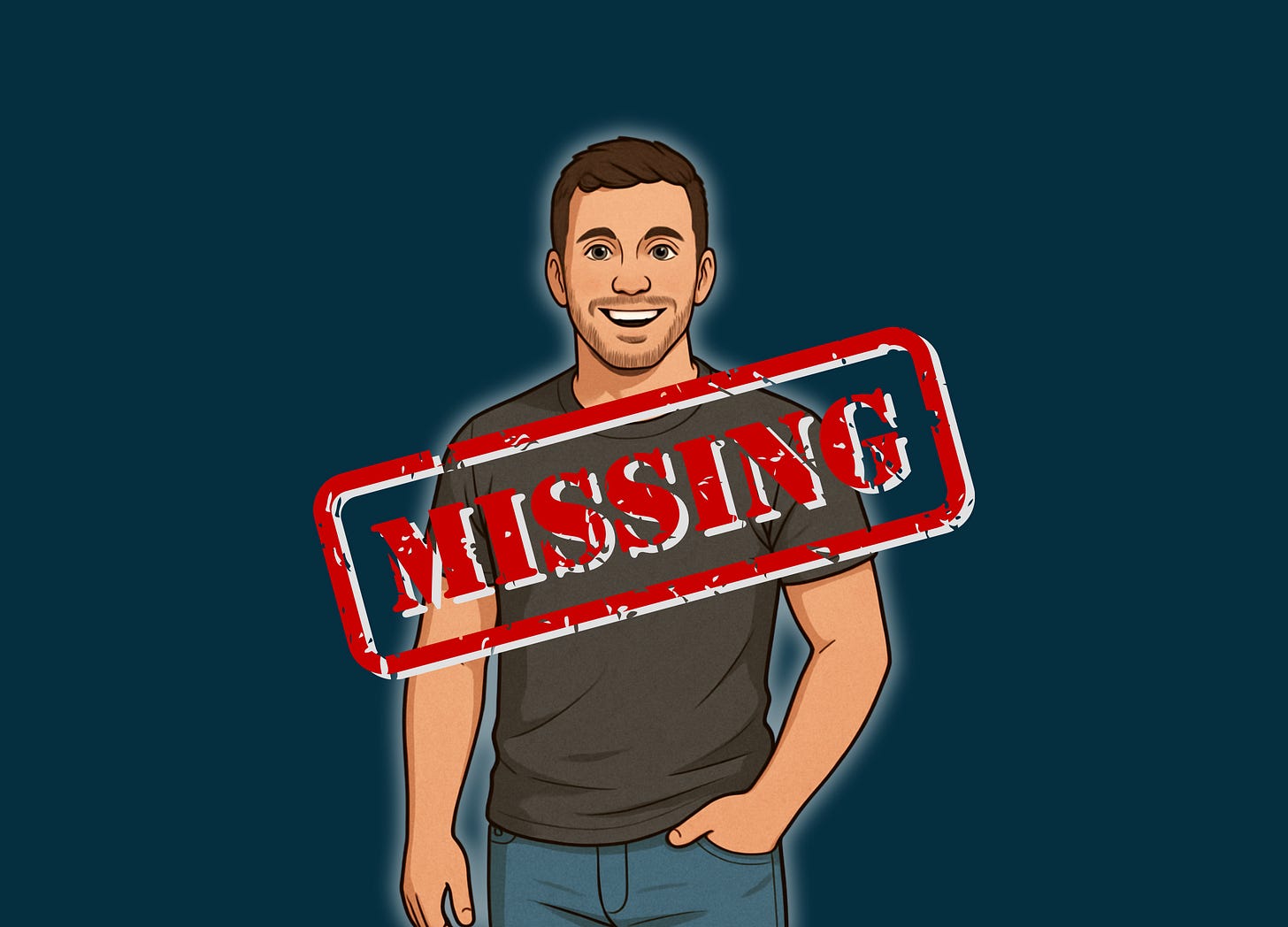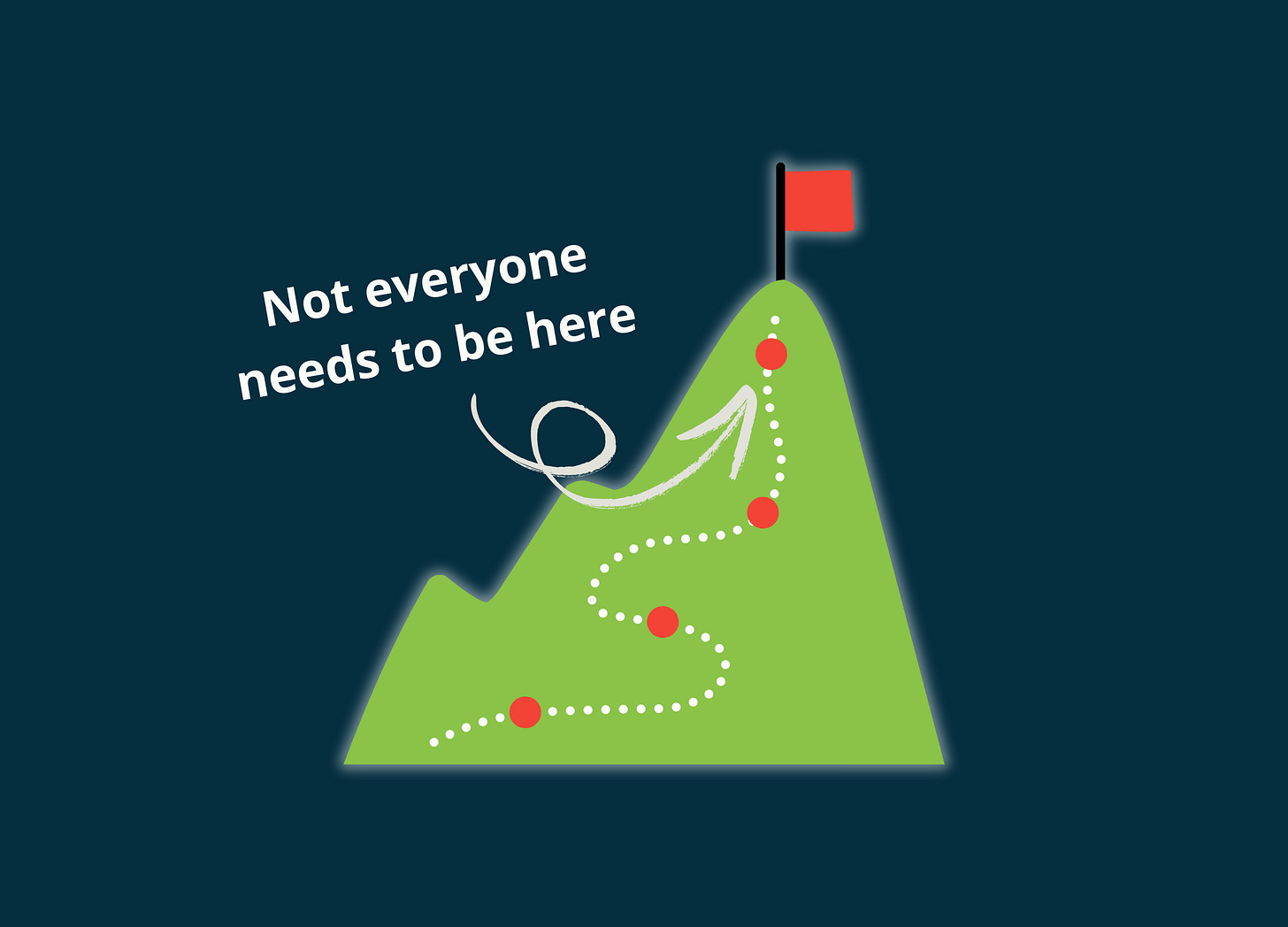Writing Hiatus and What My Grandfather's Long Life Taught Me About Lifting
For the handful of you who wait for the next installment of the StansellFit substack with bated breath, you may have noticed that I haven’t written anything in a while. For that, I am sorry. My in-person and online training businesses have picked up, so my time has been limited. But there’s also been a deeper, more sinister reason for my absence. I had reached a point of creative nihilism.
At the risk of sounding arrogant, I have a great deal of knowledge in my industry. That knowledge came from reading content from people much smarter than me over the years. Although I wouldn’t be where I am in my career without it, consistently immersing yourself in the content of your brilliant peers leaves you wondering where your value add is. Couple this with the ability to get a well-articulated, comprehensive article with a simple query using ChatGPT, and every time I would sit down to write, I would think to myself, “What’s the point?”
Luckily, I came across a couple quotes from the book The Obvious Choice by Jonathan Goodman that helped snap me out of it:
Overinformed pessimism is an inevitable and unfortunate by-product of an information economy. The reasons why somebody else is better suited than you to do the thing. Why it’s hard. A bad idea. Or all the ways it could go wrong. We second-guess ourselves, not because we don’t know enough, but because we know too much.
Knowing too much about a thing is often worse than not knowing enough. All the information we can access in our pockets can be a crutch rather than a support. When we become aware of all the reasons we shouldn’t do something, sadly, we often don’t.
I’ve been a victim of analysis paralysis for most of my adult life, which is a death sentence for creativity. The amount of great stuff you create is proportional to the amount of shit you’re willing to put out. My standards have been too high for too long and they’ve stifled any sort of creative consistency. To finish this unnecessarily long explanation of why I haven’t written, I am going to try to take the advice of Jed McKenna:
I used to try to be smart and now I don’t and everything works a whole lot better. Stopping being smart was one of the smartest things I’ve ever done.
So no more wondering if what I’m saying is worth a shit. I will let you, the reader, decide.
What My Grandfather’s Long Life Taught Me About Lifting
My grandfather died just over a year ago, barely short of his 99th birthday. What a life! Anytime someone lives that long, one of my first thoughts is How? Genetics plays an enormous role in longevity. After all, some people treat their body like a temple and die at 40, and some treat it like an amusement park and live twice that long. But there is still something to find in the lives of people who have optimized their longevity to the fullest extent possible.
In my grandfather’s case, it’s not so much what he did but what he didn’t do that’s interesting to me. In nearly a century, my grandfather never stepped foot in a weight room, nor lifted a single weight. Now, this may be a big blow to anyone who has made the gym their raison d’être, but the message was more liberating for me.
You don’t need to lift weights to live a long, healthy life. That message seems antithetical to my entire business and ethos, but not really.
I’ve spent years grinding to be as strong and muscular as possible, sometimes to the detriment of my physical well-being. I’ve dealt with all manner of aches and pains throughout my 25-year lifting career. As I’ve gotten older, my goal is still to be strong and muscular, but in a way that minimizes pain and injury.
The life that my grandfather was able to live without lifting taught me that there is such a thing as being strong enough, and that point is probably much earlier than most fitness enthusiasts and professionals think. I have nothing more to prove to anyone, and at some point, the continued pursuit of metrics that I no longer care about only serves to boost my ego.
There are many reasons people lift weights. Some do it for mental health, for aesthetics, or because they love the ritual and the satisfying feeling of progress. But for anyone like me who gets caught in the trap of more is always better, it’s nice to be reminded that you don’t need to be the strongest, biggest, most fit person in the gym.
Conclusion
The takeaway isn’t that resistance training is unnecessary. There is a great deal of evidence that it can independently reduce your risk for all-cause mortality, among a host of other benefits. And though we can’t really do A/B testing on someone’s life, my grandfather may have lived even longer or had a better quality of life in his later years if he had participated in resistance training. What his longevity taught me is that sometimes we need to take a step back and remember why we’re doing this. Lifting should support our life, not take away from it.
For most people, simply being able to do the things they want to do and avoid deleterious health conditions is enough. And that’s a perfectly noble aim.




Good stuff. Glad to see! And…. Welcome back! :-)